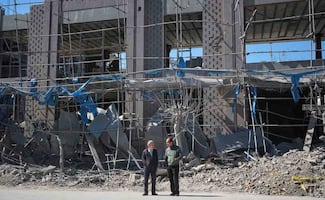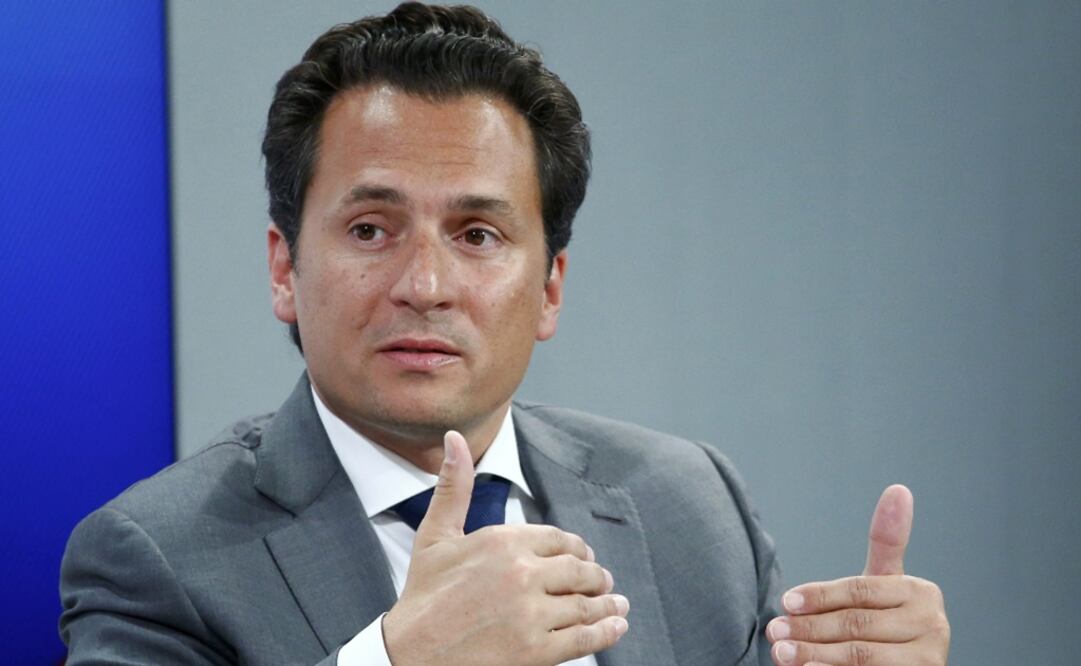Más Información

Precio del petróleo se dispara de nuevo por la guerra en Irán; conflicto en Medio Oriente sacude bolsas globales

SRE reporta 321 mexicanos evacuados ante conflicto en Medio Oriente; no hay afectados en su integridad

"Buenas tardes, ¿hay alguien?"; la historia de las cabañas y la narconómina de "El Mencho", Con los de Casa

Reforma Electoral: Sheinbaum no ve una "traición" del PT ni del Verde; acusa groserías en su contra y pide ver al "MCPRIAN"

Venta del 24% de Banamex fue el día del operativo contra “El Mencho” y nadie dudó: Chico Pardo; destaca la confianza en México
Emilio Lozoya
, the former CEO of Pemex , is accused by the Mexico Attorney General’s Office (FGR) as the perpetrator of money-laundering resulting from the bribes he allegedly managed between 2009 and 2012 with Brazilian construction company Odebrecht .
According to the arrest warrant against him, the former CEO of Odebrecht Luis Alberto Meneses Weyll said that Emilio Lozoya was the connection with Odebrecht to make partnerships and win building contracts .
Thus, the FGR considered Lozoya as the perpetrator of the operations with resources from illicit origin , related to the bribes from Odebrecht for positioning itself as the main contractor of the administration of Enrique Peña Nieto .
This, due to the Unity of Financial Intelligence (UIF) documented the bank transfers that the firms linked to Lozoya made to different companies, as well as operations of sale linked to his mother and sister , Gilda Margarita Austin y Solís , and Gilda Lozoya , respectively; to his wife , Marielle Helene Eckes , and to Nelly Maritza Aguilera Concha .
The last two were pointed as accomplices of Emilio Lozoya in the offense of money laundering , who was also accused of bribery . The five were accused as co-perpetrators of illicit association
According to the arrest warrant, Emilio Lozoya knew the organization Odebrecht S.A. , and many Mexican businessmen who could complement the interests of the Brazilian firm.
From 2010 to 2014 , the building company was used to pay USD $10.5 million negotiated by Meneses Weyll and Emilio Lozoya for the businesses he sought to achieve in the states that were in process of government renewal .
To that effect, said the FGR , the former CEO of Pemex allegedly recommended Meneses to ally with Mexican businessmen to strengthen his position in the market, such as J orge Eduardo Rivera Schotte , Juan Carlos Tapia and Felipe Ruiz .
“From 2009 to 2012 , Emilio Lozoya was a consultant for structuring their programs and introduced him to important businessmen who had presence in the states of the Federation; the association of those businessmen allowed Odebrecht to win contracts ,” asserted the FGR.
When Lozoya was appointed CEO of Pemex, he met Meneses Weyll , who expressed his interest in having contracts with the oil company, for which he promised to pay him USD $6 million in exchange for winning the bid of the works of the refinery in Tula, Hidalgo .
“I had the initiative to acknowledge the support of Emilio, telling him that by winning that contract, I could accept the payment of USD $6 million , out of which 2 million [were] for the initiative (…) and 4 million were under the condition of our success in the contract,” declared Meneses Weyll to Brazil’s Attorney General’s Office .
“After the contracting of the project, which I will refer to now as Tula 1 contract , we complied with the agreement , from the moment he gave us the bank accounts , and through the area of structured operations ,” he stated.
According to the FGR, the building company established a presence in Veracruz and Tamaulipas through the financing of the election campaigns of Javier Duarte de Ochoa and of the deceased candidate for governor Rodolfo Torre Cantú .
To Lozoya’s advise , in Veracruz the company reached Felipe Ruiz and his son by the same name, owners of Constructora Ruso , and to whom Meneses made known his intention to partner with local businessmen in the state and make businesses. Of particular note is that in July 2010 state elections were going to be held and the then governor Fidel Herrera would be in charge of designating Javier Duarte de Ochoa as successor.
“The Building Company Norberto Odebrecht , with the end of obtaining a good positioning in the next administration for acquiring contracts, provided to the campaign of Javier Duarte de Ochoa the amount of USD $500 thousand , payment authorized by Luis Antonio Mameri , Odebrecht’s business leader in Latin America ,” detailed the FGR.
“As a consequence of those payments, in the middle of 2013 , the government of Veracruz directly adjudged the Building Company Norberto Odebrecht , the project Propósitos Múltiples de Xalapa , being outsourced for that work the company Constructora Ruso .”
In Tamaulipas , Meneses Weyll partnered with Jorge Eduardo Rivera Schotte , businessmen of that state and stakeholder of Petrochem México , that was owned by a group of businessmen who supported the candidate of the coalition " Todos por Tamaulipas ", Rodolfo Torre Cantú .
Rivera Schotte
told Meneses that if he wanted to have a presence in the state he needed to contribute to the election campaign of the candidate in question.
“During the first semester of 2010 , the Building Company Norberto Odebrecht , made a payment of USD $350 thousand , following the same strategy as in Veracruz ,” stated the FGR.
In March 2012 , Emilio Lozoya was one of the leaders of the Campaign Committee and Meneses Weyll said that the former CEO of Pemex told him that if the Institutional Revolutionary Party (PRI) won the presidential election , he would have a relevant position in the federal government .
“Asking for a payment on his favor for the concept of support for such campaign, this with the end to help in the positioning of the company Odebrecht in the market of the states of Veracruz and Tamaulipas and with the businessmen Juan Carlos Tapia Vargas in the state of Hidalgo ,” said the FGR.
Lozoya allegedly received USD $4 million between April and November 2012 in the bank accounts of the companies Latin America Asia Capital Holdings, LTD and Zecapan S. A.
The former CEO of the building company showed electronic transfer vouchers made from April to November 2012 by the company Offshore Innovation Research Engineering linked to the Building Company Norberto Odebrecht , and to the account 126007 of the Bank Gonet & Cie in behalf of Latin America Zecapan S. A ., for a total of USD $3’577,175.59 .
mp
Noticias según tus intereses
[Publicidad]
[Publicidad]














